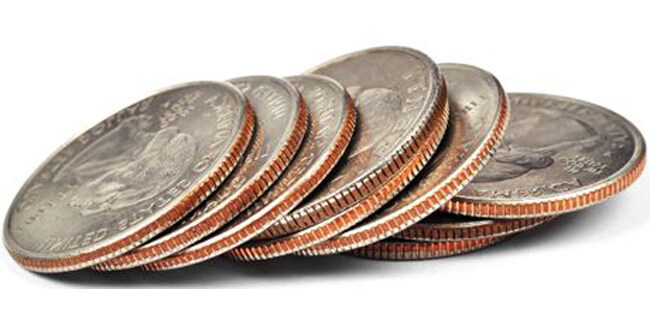 Living (and loving) Life
Living (and loving) Life
I’m sure you’ve probably noticed that silver dollars, half-dollars, quarters and dimes have ridges around their edges, but nickels and pennies don’t.
Have you ever wondered why that is?
Well, those ridges are called reedings, and the reason why they’re present on some coins dates all the way back to the establishment of the Coinage Act of 1792…
That act established the uniform standards for the making of all US minted coins.
One of those standards was that every coin in each denomination must consist of exactly the same amount of the metal it’s made of.
Since the more valuable coins were made of gold and silver they knew it would be tempting for crooks to file off portions of those coins’ outer edges and sell the gold or silver dust they removed for cash.
To prevent that from happening the mint began reeding those coins (i.e. stamping ridges around their edges).
The ridges would make it immediately apparent if a coin had been filed down or otherwise altered, and since altering coins in that way carries stiff penalties upon conviction that pretty much put an end to the illicit practice.
But you’re probably still wondering why the nickel and penny aren’t reeded also…
Well, the answer comes down to money (pun intended).
Nickels and pennies were never made from gold or silver.
They were made from much cheaper metals instead, and that made the extra manufacturing expense to reed them too costly when compared to the actual value of the coins.
The mint stopped making coins out of gold and silver years ago which effectively made reeding new coins unnecessary for its original purpose.
But they still reed them anyway as a nod to tradition and to help visually impaired consumers distinguish between similar sized coins.
Now that you know why some of our coins have ridges, check out this short video that shows how paper money is designed and printed!
Note: As always, you can watch the video at full screen by clicking the “square” icon in the lower right-hand corner of the video.
Pretty interesting, huh?